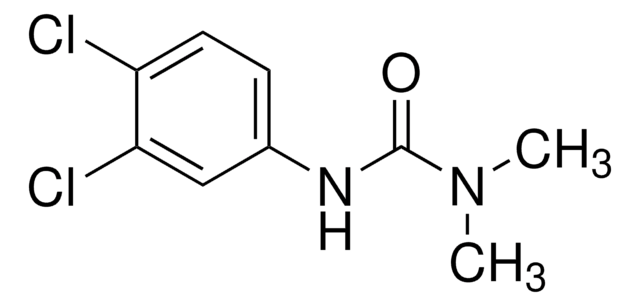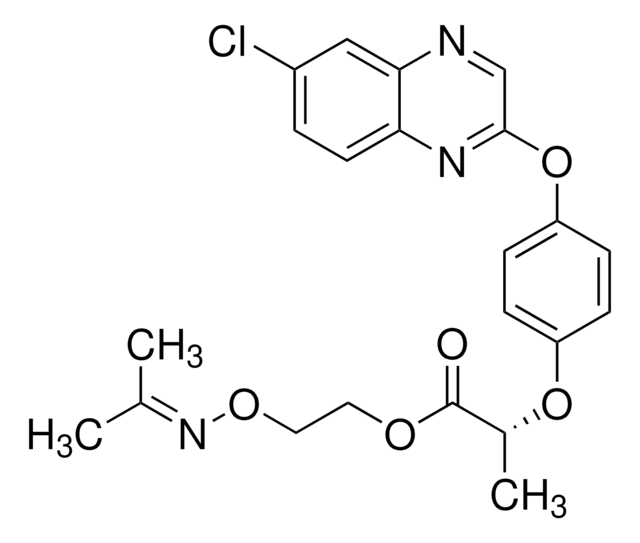45422
Diquat dibromide monohydrate
PESTANAL®, analytical standard
Synonym(s):
Diquat
About This Item
Recommended Products
grade
analytical standard
Quality Level
product line
PESTANAL®
shelf life
limited shelf life, expiry date on the label
storage condition
under inert gas (sensitive)
technique(s)
HPLC: suitable
gas chromatography (GC): suitable
application(s)
agriculture
environmental
format
neat
storage temp.
2-8°C
SMILES string
[Br-].[Br-].[H]O[H].C1C[n+]2ccccc2-c3cccc[n+]13
InChI
1S/C12H12N2.2BrH.H2O/c1-3-7-13-9-10-14-8-4-2-6-12(14)11(13)5-1;;;/h1-8H,9-10H2;2*1H;1H2/q+2;;;/p-2
InChI key
KLJOSQAQZMLLMB-UHFFFAOYSA-L
Looking for similar products? Visit Product Comparison Guide
Application
Recommended products
Legal Information
signalword
Danger
Hazard Classifications
Acute Tox. 2 Inhalation - Acute Tox. 3 Dermal - Acute Tox. 3 Oral - Aquatic Acute 1 - Aquatic Chronic 1 - Eye Irrit. 2 - Skin Irrit. 2 - Skin Sens. 1 - STOT RE 1 Oral - STOT SE 3
target_organs
Respiratory system
Storage Class
6.1A - Combustible acute toxic Cat. 1 and 2 / very toxic hazardous materials
wgk_germany
WGK 3
flash_point_f
Not applicable
flash_point_c
Not applicable
ppe
Eyeshields, Faceshields, Gloves, type P3 (EN 143) respirator cartridges
Choose from one of the most recent versions:
Already Own This Product?
Find documentation for the products that you have recently purchased in the Document Library.
Customers Also Viewed
Articles
Ultra-high performance liquid chromatographic (UHPLC) separation of polar herbicides, paraquat and diquat using SupelTM Carbon LC column with baseline resolution, excellent peak shape, and good lot-to-lot reproducibility.
Polar graphitic carbon enables UHPLC separation of highly polar pesticides, herbicides, and Vitamin D metabolites, advancing liquid chromatography capabilities.
Our team of scientists has experience in all areas of research including Life Science, Material Science, Chemical Synthesis, Chromatography, Analytical and many others.
Contact Technical Service













